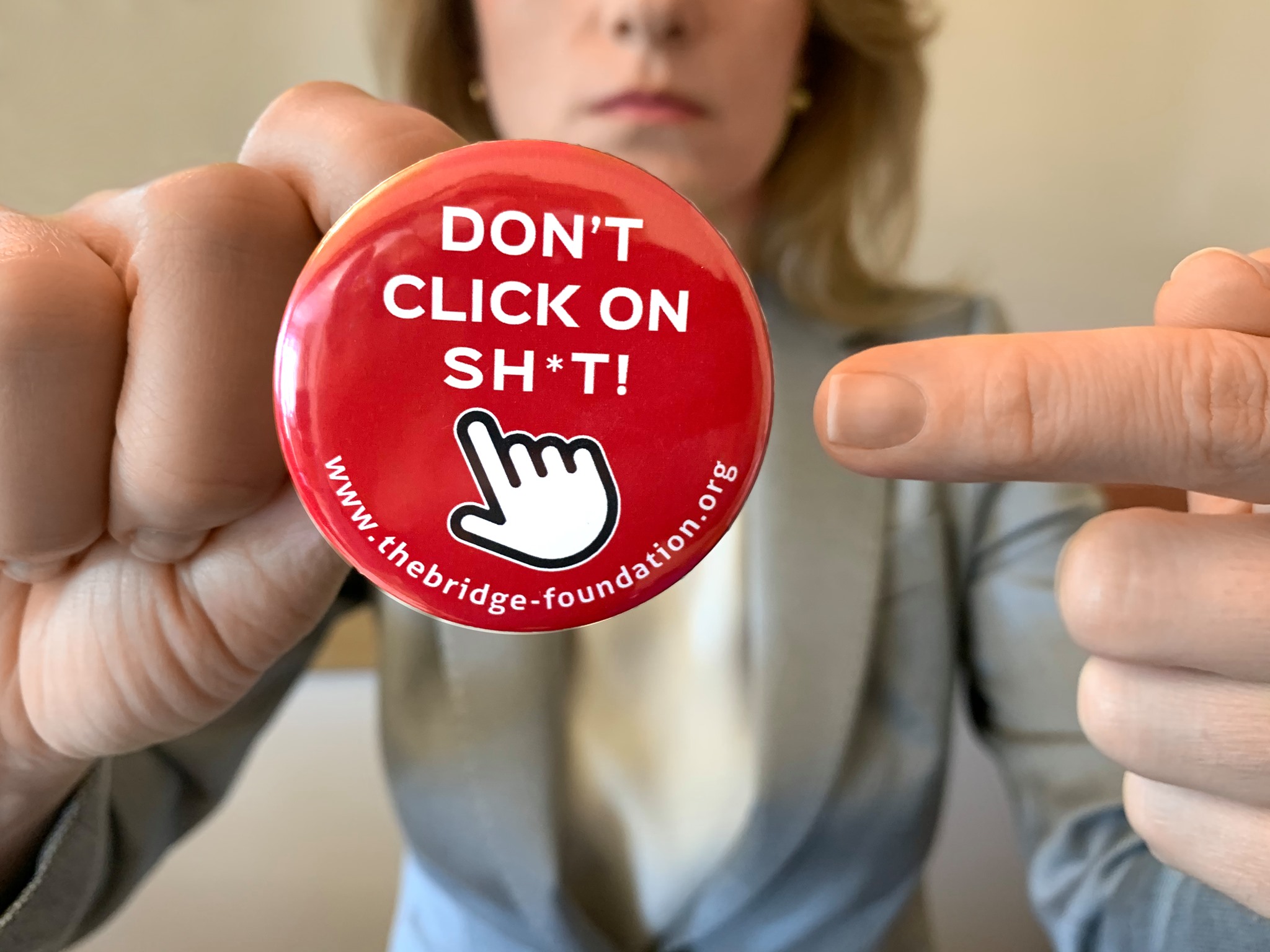Don’t Click on Sh*t! – Be aware, click with care!
COVID-19 online scams are spreading faster than the virus through malicious emails, websites and SMS text messages.
April 3, 2020 -
New Eastern Europe
-
Events

Don’t Click on Sh*t! (in Polish Nie klikaj w byle co!) is a social awareness campaign to fight online scams feeding on COVID-19 fear and panic. The campaign is a sounding alarm to expose abuses appearing on the internet.
“During the pandemic we do our best to keep the highest level of personal hygiene. We must keep the same level of hygiene online, where all of our professional, academic and personal activities have moved. The campaign is an urgent wake-up call. Its ABC will help us avoid unnecessary crises online. From junior to senior, being cyber aware has become the new must!” said Margo Koniuszewski, president of The Bridge Foundation.
The freshly launched Don’t Click on Sh*t! campaign was well received by the student community. “We have been forced to take all our activities online. This is why this is so important,” said Konrad Gałysa, a law student at the University of Silesia, Katowice.
“People must realise that the dangers on the web are real. I hope that our initiative will help them understand how to use the internet safely,” adds Wiktoria Stundis, Faculty of Economics, Finance and Management student at the University of Szczecin.
“Students are eager to help others improve their online safety. Some of them say that they will share it with their parents who particularly need such advice,” explains Koniuszewski.
In Poland and beyond, COVID-19 online scams are spreading faster than the virus through malicious emails, websites and SMS text messages. “The campaign has a provocative character because it is an urgent call to action. We need to protect ourselves from these cyber-criminals,” adds Koniuszewski.
The organizers say that we need to be very careful with emails or SMS messages. An email seemingly sent by a city official asking to fill out a declaration form and receive 200 PLN for staying home is an attempt to defraud our personal data. Humanitarian organisations offering free masks after paying shipping costs are attempts by scammers to get your credit card data. Deceptive advertising offering coronavirus vaccines (not yet existing) are also multiplying as are requests for donations from dubious charitable organisations.
The campaign is part of the Cybersecurity Challenge PL2020 project that received patronage from the Ministry of Digital Affairs, the Government Centre for Security (RCB) and ISSA Poland. The national cyber competition planned on 23-24 April 2020 at the Warsaw Stock Exchange will take place online due to the pandemic. Interdisciplinary teams of five members from the 16 Polish voivodships will form tiger groups, advising the government on how to address the cyber-crisis.
New Eastern Europe is a media partner in the Cybersecurity Challenge PL2020 project.

































